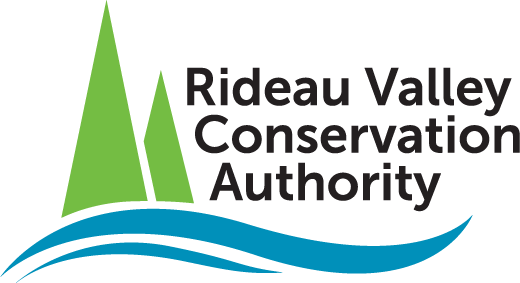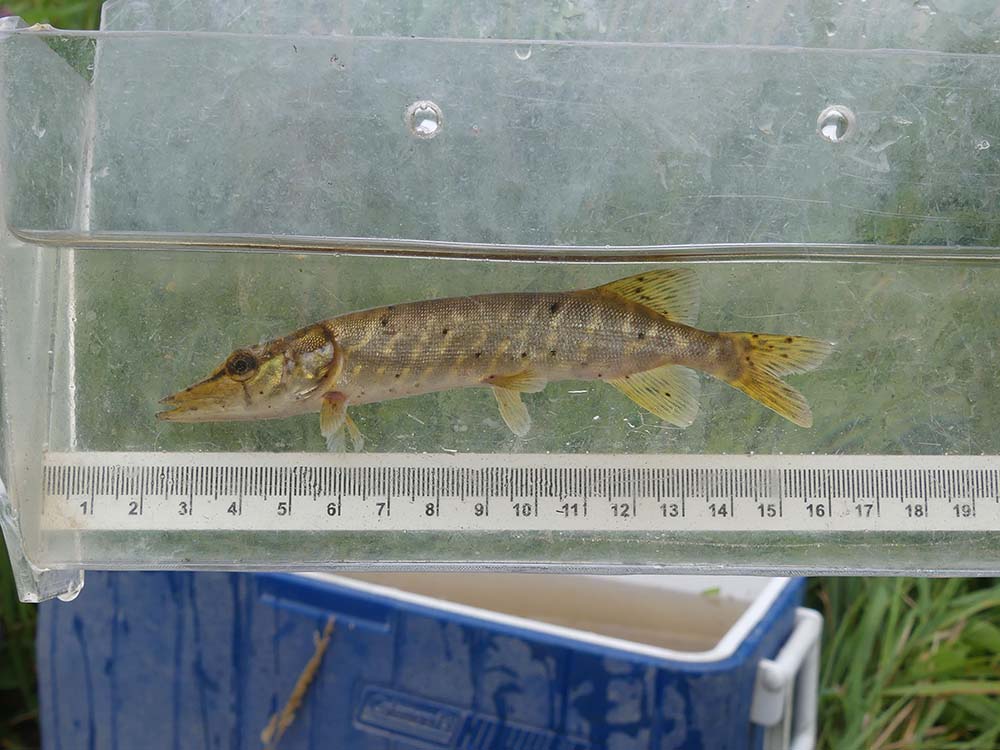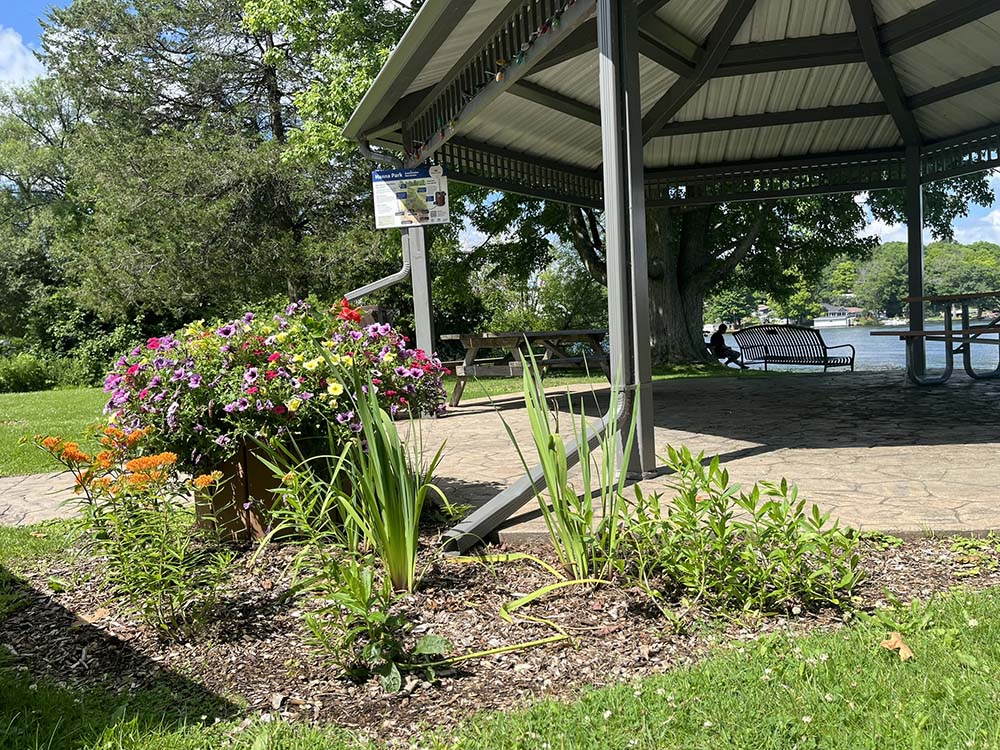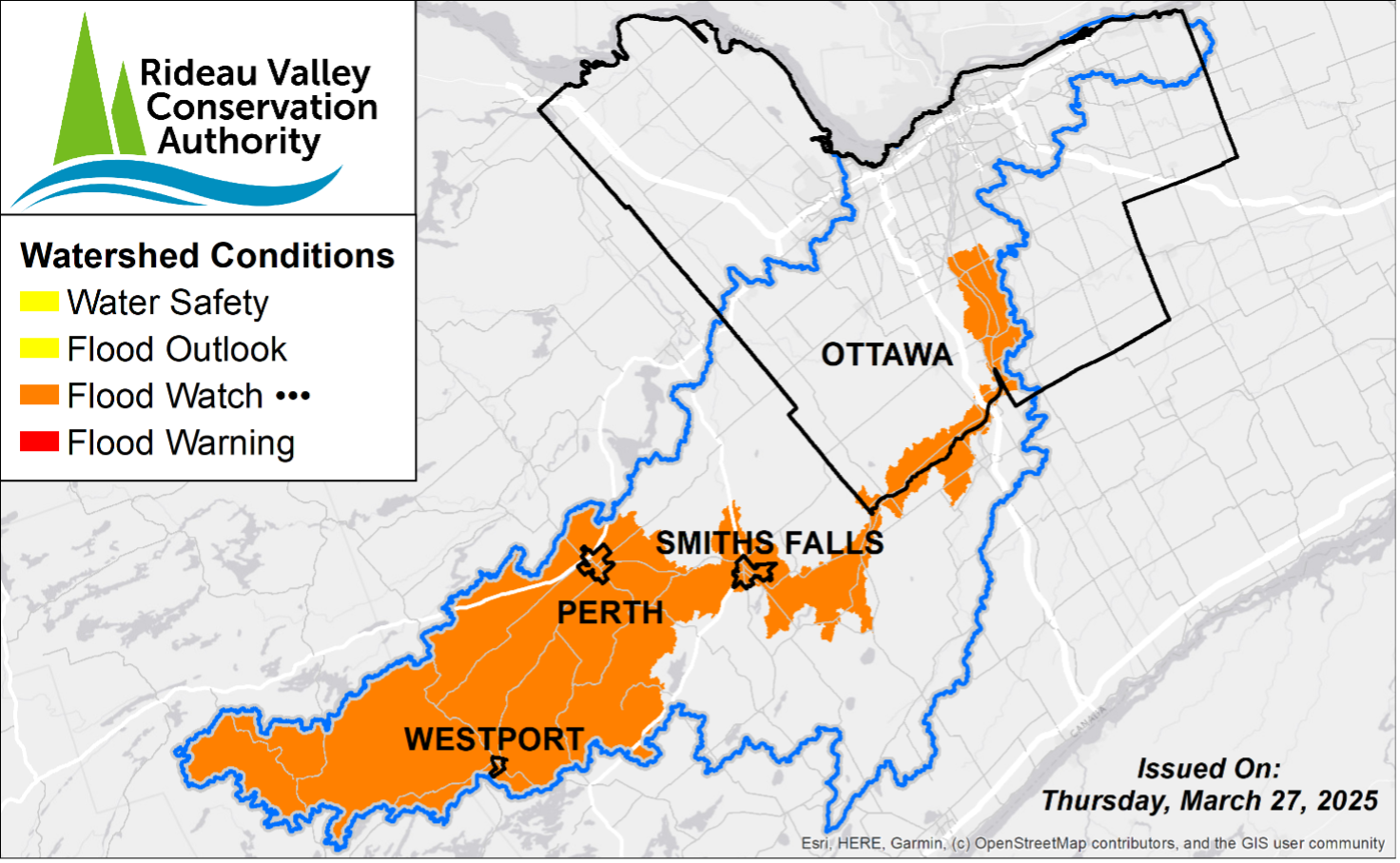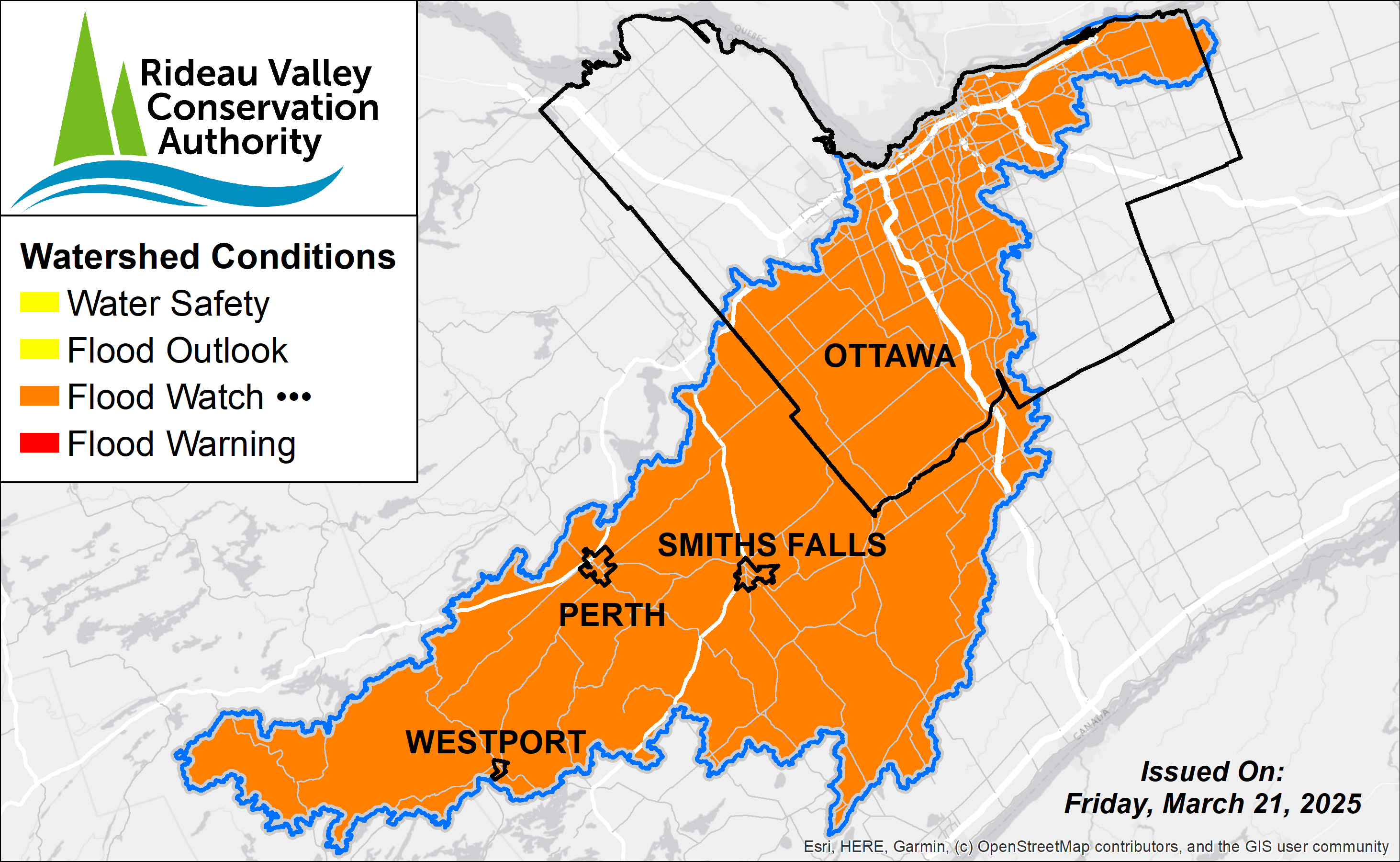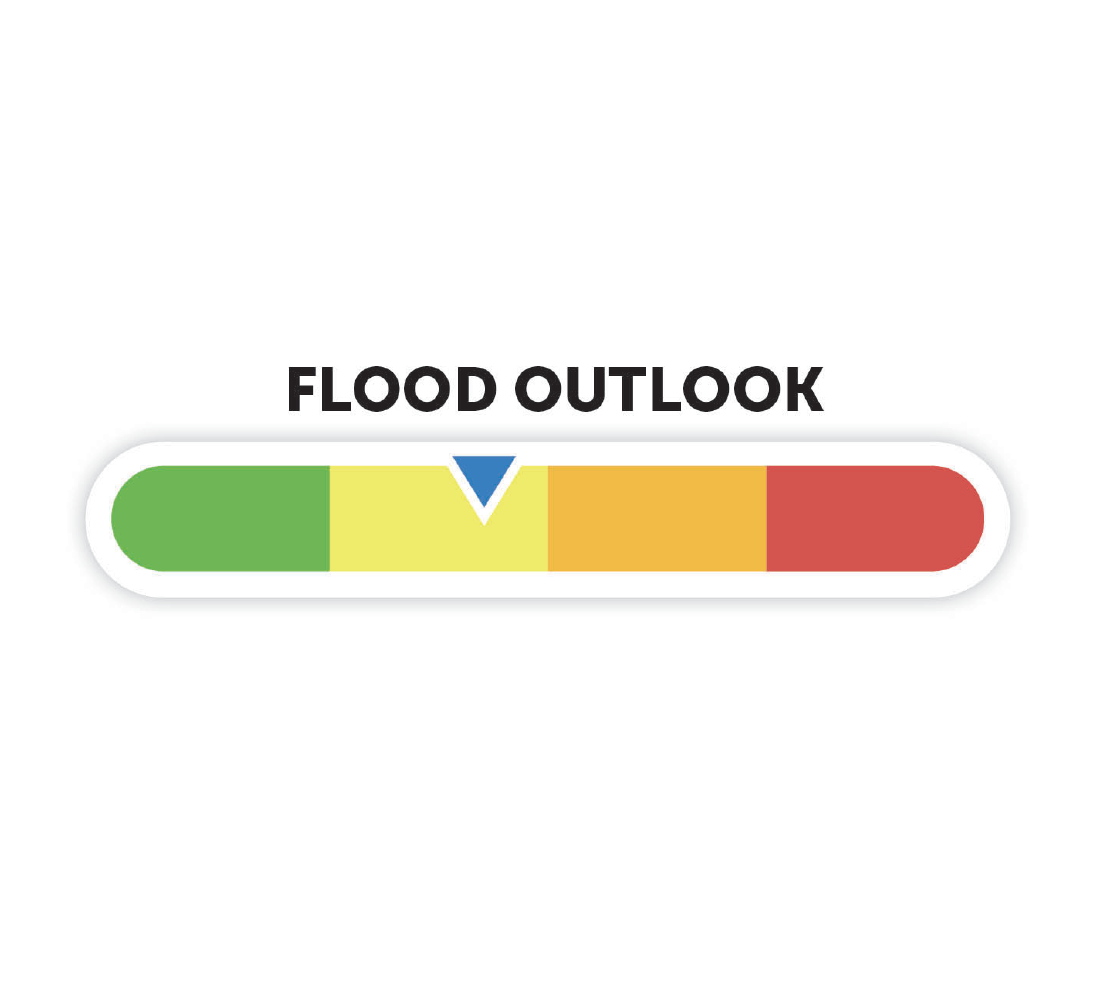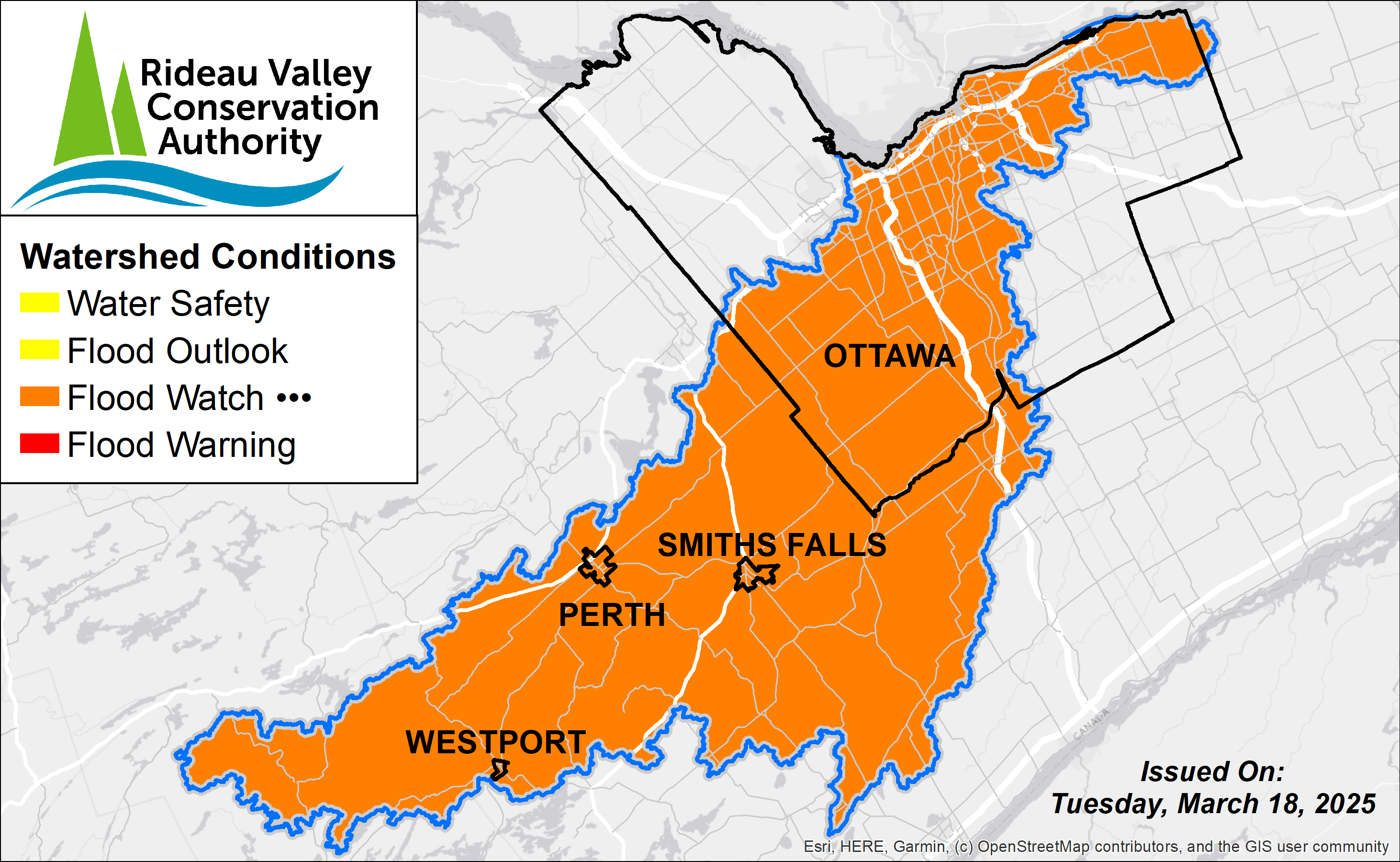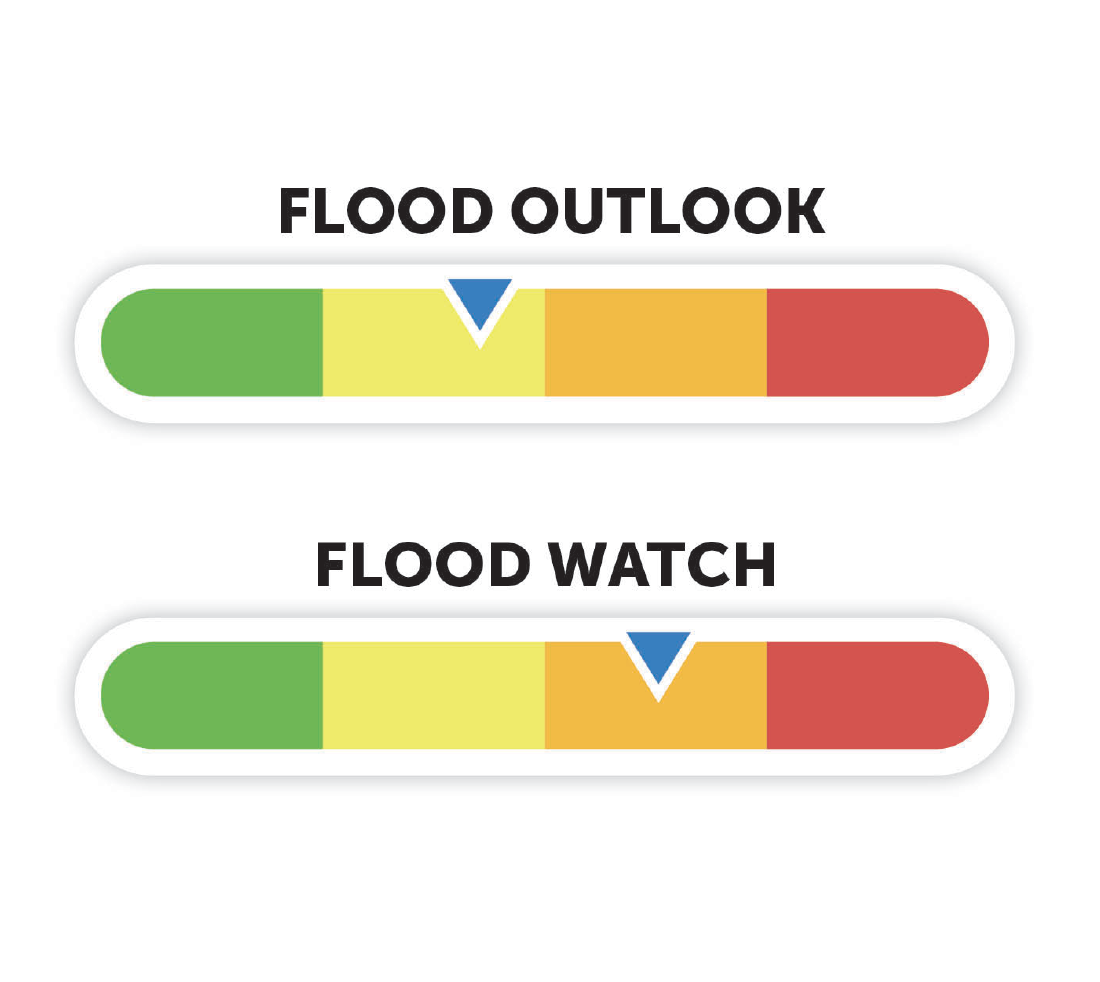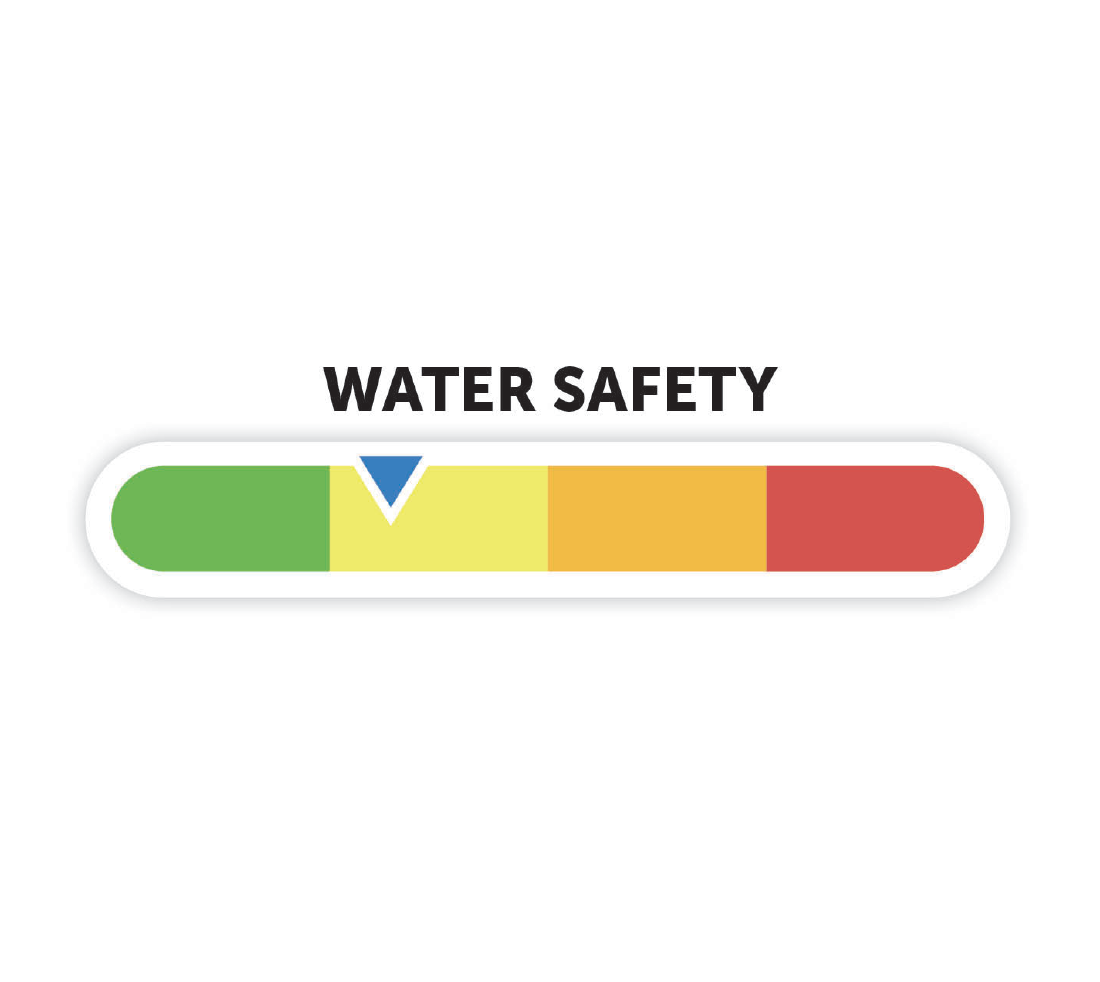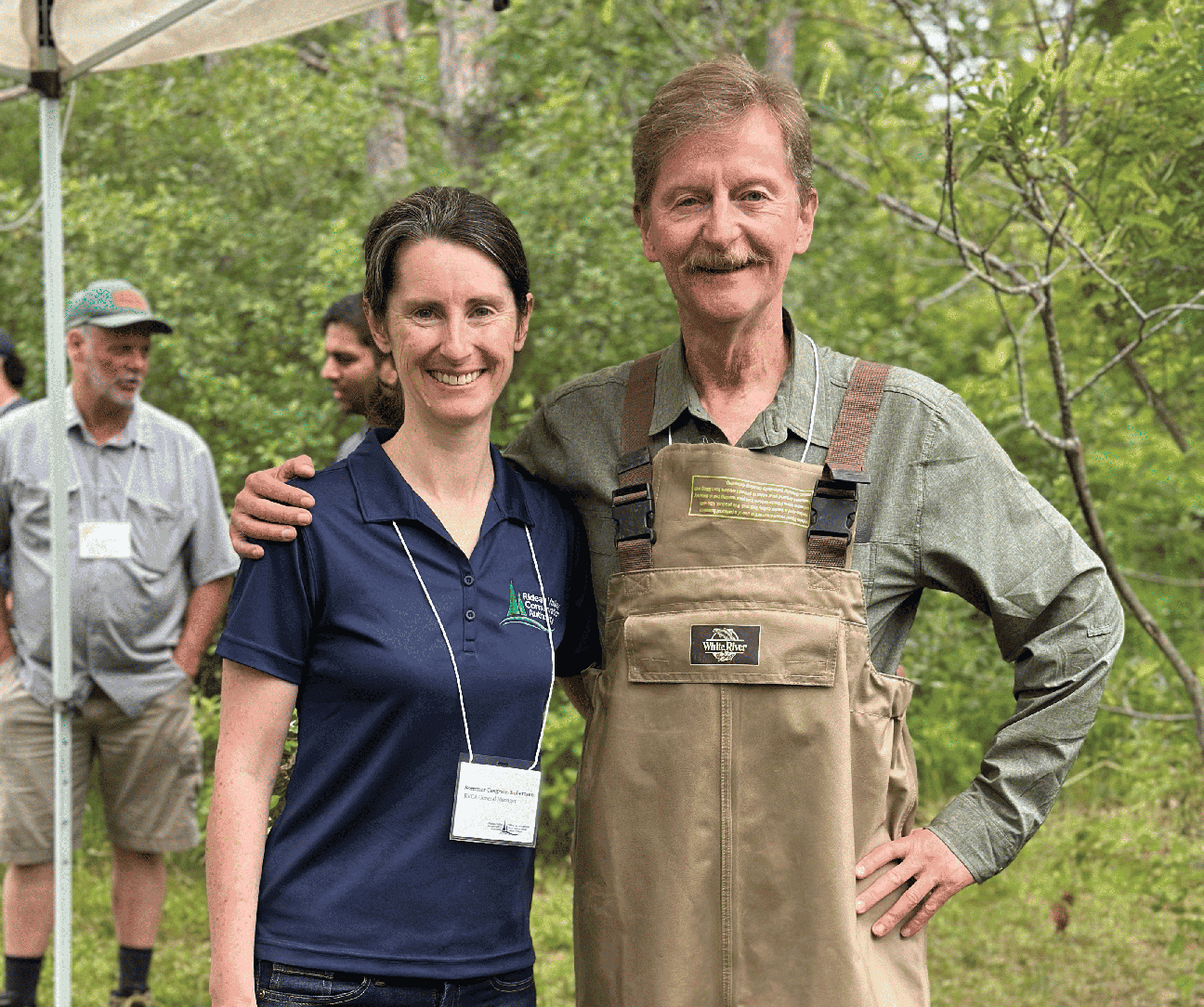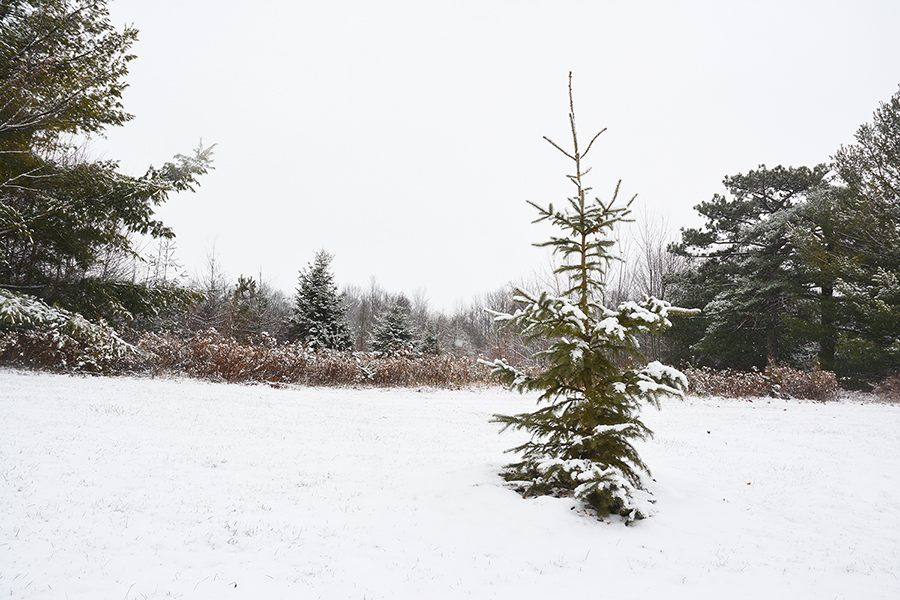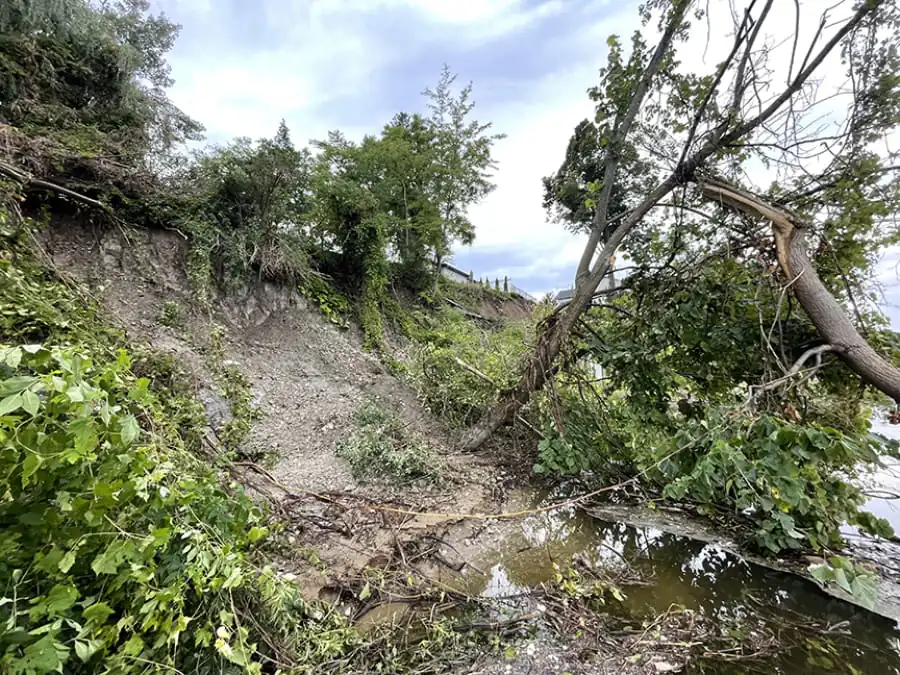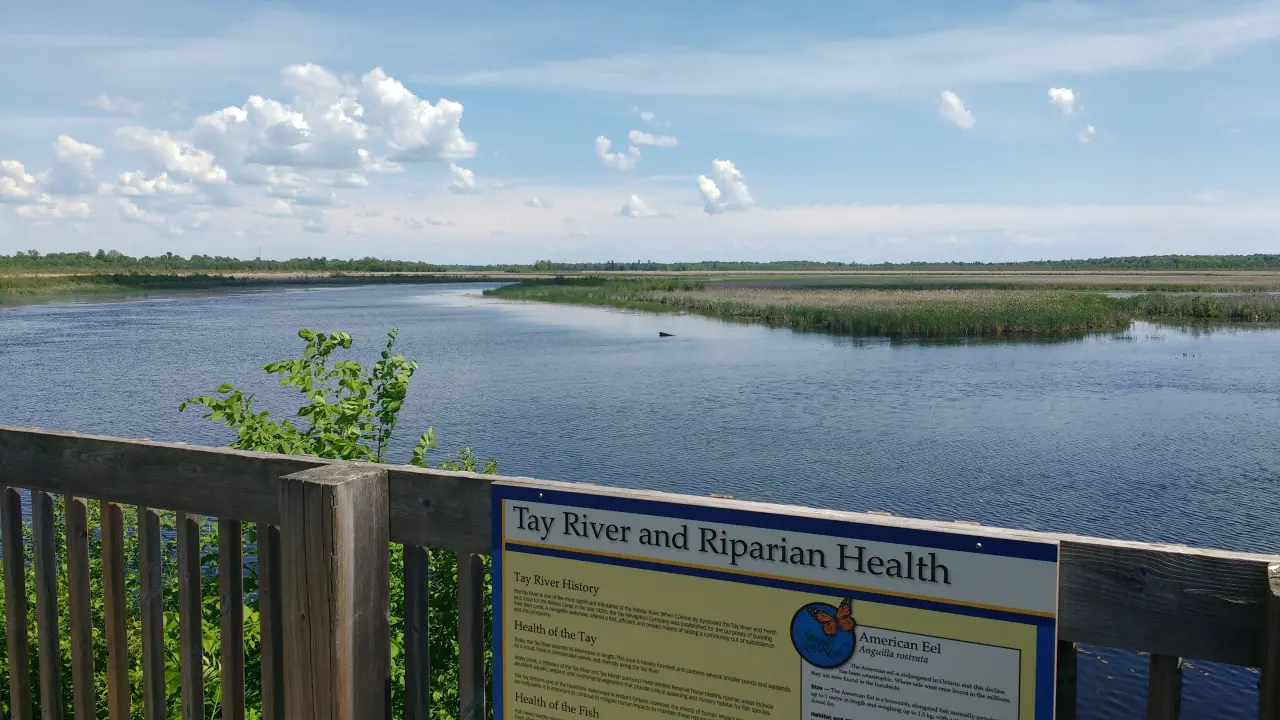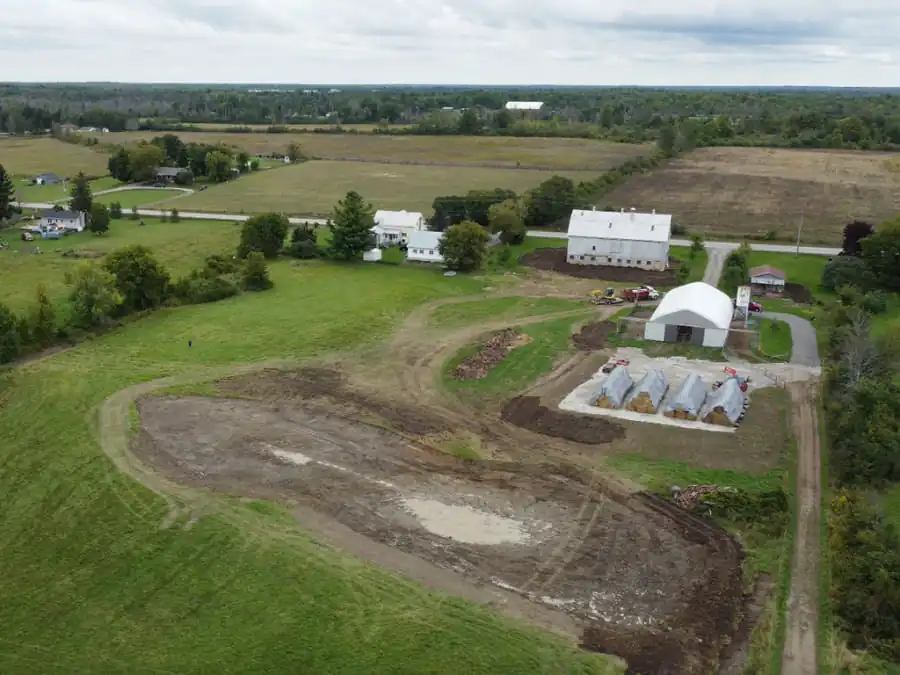News & Stories
February 21, 2025 – For someone who’s hiked the Perth Wildlife Reserve “more times than I can count,” being elected Chair of the Rideau Valley Conservation Authority’s board of directors is “very exciting.”
Perth councillor Gary Waterfield was elected to the one-year term at the RVCA’s board meeting on January 23, 2025. Past chair and North Grenville councillor Kristin Strackerjan was elected Vice Chair.
“This role is very much aligned not only with my lifestyle, but with my values and what’s important to me,” said Waterfield, who describes himself as an avid hiker and kayaker, with an interest in urban planning and municipal governance. He also sits on the board of the Perth and District Union Library and is an active member of the Friends of the Tay Watershed and the Rideau Trail Association.
“I’m passionate about what the RVCA is all about; its mission and its vision,” Waterfield added. The RVCA is one of 36 conservation authorities in Ontario responsible for furthering the conservation, restoration, development and management of natural resources under the provincial Conservation Authorities Act. With a watershed draining more than 4,000 square kilometres across 18 member municipalities – from its headwaters in Central Frontenac all the way to Rideau Falls in downtown Ottawa – the RVCA protects people and property from natural hazards like flooding and erosion while conserving the wetlands, forests and natural areas that reduce their impacts.
RVCA general manager Sommer Casgrain-Robertson congratulated Waterfield, who has been a board member for two years.
“We know that he will bring passion, experience and vision to the role," said Casgrain-Robertson, adding her thanks for the outgoing Chair. “We thank Councillor Strackerjan for her strong and steady leadership during a busy two years.”
Waterfield, a retired human resources consultant, said one of his priorities as Chair is to increase staff interaction with the board of directors, so directors can better promote the value of the RVCA and its diverse programs.
“The average citizen knows conservation authorities play an important role in developing our communities safely and sustainably,” Waterfield said. “But there are many other valuable RVCA programs that we can promote as well, such as stewardship opportunities and watershed monitoring.”
Waterfield said his personal goal is to visit all 11 conservation areas operated by the RVCA by the end of his term.
To learn more about the RVCA or to access meeting minutes and agendas, visit www.rvca.ca/governance.
-30-
DECEMBER 9, 2024 – Sure, a white Christmas is nice. But embracing a #GreenChristmas will protect those magical snowy holidays from disappearing altogether.
Our charitable partner the Rideau Valley Conservation Foundation is dedicated to protecting and enhancing the Rideau Valley’s most pristine natural areas so they can in turn protect us from extreme weather and climate change impacts. But alongside watershed wellness, the Foundation also supports human wellness through more accessible outdoor recreation opportunities for people of all incomes, backgrounds and abilities.
This holiday season, give the gift of a brighter future when you support the Foundation’s programs on behalf of your loved ones - all from the comfort of your couch! Your gift can be delivered instantaneously with a personalized e-card, or delayed until the perfect moment this holiday.
Check out these five popular Green Gift ideas:
1. Tree planting: Put some trees under the Christmas tree! We’ll plant locally-grown, native seedlings right here in the watershed on behalf of your loved ones to provide wildlife habitat, store carbon and keep our air and water clean for generations to come. Beautiful and symbolic, this is truly the gift that keeps on giving: https://www.rvcf.ca/ways-to-give/special-occasion-tree-planting
2. Memorial grove: The holidays can be difficult when you’re missing someone. Consider gathering the family to plant a grove of native trees for your loved one while securing a brighter future for their descendants. Each person honoured will also have their name added to the wall of remembrance: https://www.rvcf.ca/ways-to-give/memorial-tree-planting-program
3. Go carbon neutral: Take #GreenChristmas to a whole new level when you go carbon neutral through the Foundation! We can help you calculate your carbon footprint for the year, the holidays or even a single event and translate it into trees to be planted across the watershed. Not only do trees absorb carbon dioxide from the air and store it for up to 80 years, they also clean our air and water, reduce flooding, improve habitat and support natural forest growth. It’s a win-win-win-win-win! Get started: https://www.rvcf.ca/ways-to-give/carbon-neutral-program
4. Adopt an Acre: It’s difficult to wrap a wetland for Christmas, but adopting an acre is the next best thing. Put a brighter future under the tree this year as you protect more than 8,600 acres of local natural spaces for your loved ones, your community and the environment! These crucial habitats are hard at work reducing our risk of floods, cleaning our water, stopping erosion and storing vast amounts of carbon to keep our communities healthy and resilient in the face of climate change. More here: https://www.rvcf.ca/ways-to-give/adopt-an-acre
5. Support Nature For All: Everyone deserves access to the great outdoors. The Foundation’s Nature For All program is working hard to transform Baxter Conservation Area into an accessible wilderness haven for people of all abilities. Its flagship accessible marshland bridge opened earlier this year, and Phase 2 is focused on upgrading the adjoining boardwalks and trails. Give the gift of accessibility this holiday: https://www.rvcf.ca/ways-to-give/nature-for-all
BONUS GIFT IDEA:
The RVCA’s Annual Parking Pass covers parking for boat launches, beaches and trails at our five paid sites all year long. This $55 pass makes a wonderful holiday gift for the nature lovers, sun worshippers, dog walkers, anglers and trail runners on your list! Order at www.PayByPhone.com using location code 5222 or contact Chelsey at
-30-
The Rideau Valley Conservation Authority is seeking feedback from the public on its mandatory hazard management programs, as part of the development of a Watershed-Based Resource Management Strategy required under Ontario Regulation 686/21.
All residents, landowners, municipal partners, agencies and businesses in the Rideau Valley are invited to complete a survey on the delivery and improvement of mandatory programs and services including Flood Forecasting and Warning, Drought or Low Water Response, Land Use Planning advisory services and application of development regulations in natural hazard areas.
Natural hazard areas include river or stream valleys, unstable soils or bedrock, areas affected by flooding, erosion or dynamic beaches, and wetlands.
The survey is open until November 18, 2024. Survey results will be used to prepare an interim Watershed Management Strategy, which will be followed by more extensive stakeholder and public consultation in 2025 to inform a more detailed and comprehensive Watershed Management Strategy. Next year’s Strategy will dive deeper into RVCA’s work and will encompass all programs and services as the RVCA prepares a new Strategic Plan.
For more information contact
After three successful seasons as ALUS Lanark, the environmental stewardship program for farmers will now be available to all agricultural properties within the Rideau Valley and Mississippi Valley watersheds.
The expanded ALUS Mississippi-Rideau program will help farmers complete ecosystem projects such as reforestation, windbreaks, riparian buffers, wetland projects, grassland and pollinator habitat, delayed cut/grazing, and clean water projects. Farmers are eligible to have project costs covered in part or in full, and they may be eligible to receive annual payments for the ecosystem services they’ve added to their property.
The program is jointly administered by the Rideau Valley Conservation Authority (RVCA) and the Mississippi Valley Conservation Authority (MVCA) as part of their broader complement of stewardship programs and grants. Under ALUS Lanark, a total of 44 projects created 320 acres of habitat enhancements on 19 properties. By expanding the reach of the program, it will accelerate those successes and spread them across the region for the benefit of all.
The new ALUS Mississippi-Rideau program will cover 8,500km2 which encompasses 31 municipalities and is home to approximately 986,000 people. In this region, agriculture is the backbone of many local communities and farmers have been stewards of the land for generations. ALUS recognizes the value of their stewardship efforts and provides financial support to enable farmers to continue producing food and commercial goods while protecting and enhancing habitat, biodiversity and clean water.
“We’re thrilled to expand this partnership with ALUS to reach even more farmers across the watershed,” said Sommer Casgrain-Robertson, General Manager of the RVCA. “We’ve seen a steady uptake from Lanark farmers, and there is a growing interest across the watershed. We’re grateful to local farmers for all they do, so we’re excited to provide additional incentives so they can complete more conservation projects that improve the health of our watershed, our communities and local farmland.”
MVCA’s general manager said partnerships like this help farmers to pursue Environmental Farm Plans (EFP) and related projects during tough economic times.
“The farmers know these projects can enhance their operations including their water management, and ALUS makes it possible to take the leap,” said Sally McIntyre, MVCA’s General Manager.
ALUS Mississippi-Rideau will continue to be guided in its decision making by a Partnership Advisory Committee (PAC) to ensure local priorities are addressed by approved projects. Fifty per cent of the committee are local farmers who, in partnership with the other committee members (local elected officials, environmental experts, etc.), will determine which projects are prioritized for ALUS funding.
About ALUS
ALUS (originally an acronym for Alternative Land Use Services) is a charitable organization that sustains agriculture and biodiversity for the benefit of communities and future generations. ALUS provides direct financial and technical support to a network of more than a thousand farmers and ranchers who deliver ecosystem services in more than 30 communities across Canada, such as cleaner air, cleaner water, carbon sequestration, erosion control, flood mitigation, pollinator support and wildlife habitat. Learn more at ALUS.ca.
Public consultation is now open for several policy amendments to the Mississippi-Rideau Source Protection Plan. Proposed policy changes apply to the management of road salt, fuel tanks, agriculture, pesticides, fertilizers, chemical storage, snow storage and other potential drinking water threats near municipal wells or intakes.
The Mississippi-Rideau Source Protection Plan is a locally developed plan to keep our municipal drinking water safe and clean. It is required under the Clean Water Act, 2006.
This Plan is overseen by the Mississippi-Rideau Source Protection Region, and has been in effect since 2015. This plan contains policies for activities that have been determined to be significant drinking water threats (as determined by the Technical Rules under the Clean Water Act, 2006) in areas near municipal groundwater wells and surface water intakes. It is currently undergoing an update to align with recent legislative changes from the Ministry of Environment, Conservation and Parks. The updates will only apply to a select number of properties located within designated drinking water protection zones.
Drinking water sources in the Mississippi-Rideau Source Protection Region include groundwater drawn from aquifers underground, and water drawn from the Ottawa River, Rideau River, Tay River and Mississippi River. The Source Protection Plan sets out policies that use a variety of tools to protect municipal drinking water sources from contamination. These tools include education, risk management planning, prohibition and land use planning. Visit the Source Protection Region’s local website at www.mrsourcewater.ca to find out more.
The Source Protection Region is required to consult with the public on the proposed changes. Digital copies of the proposed updates can be found at www.mrsourcewater.ca/en/consultation, or hard copies can be viewed by appointment at the Rideau Valley Conservation Authority headquarters in Manotick. Members of the public can provide feedback on the proposed changes until November 22, 2024.
If you have questions or wish to provide comments about the proposed changes, please contact Marika Livingston at 613-692-3571 ext. 1148 or

Connect With Us!
